#Waldo E. Martin
Text
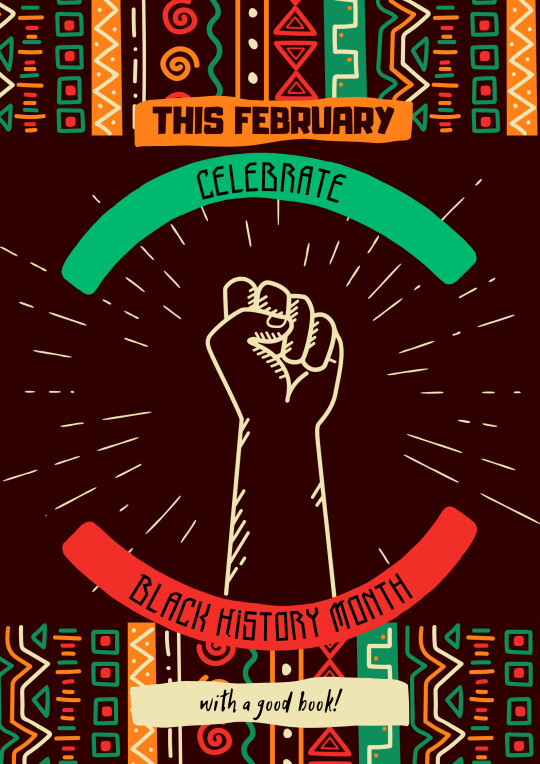
It's February! This month—and every month—is a great time to learn about Black history. Start with these titles, available at your local library:
THIS MONTH'S RECOMMENDED READS
Realistic Fiction:
Invisible Son / Kim Johnson
Nigeria Jones / Ibi Zoboi
The Black Flamingo / Dean Atta
Monster / Walter Dean Myers
Sci Fi, Fantasy, and Alternate Histories:
Pet / Akwaeke Emezi
Children of Blood and Bone / Tomi Adeyemi
Blood Debts / Terry J. Benton-Walker
The Davenports / Krystal Marquis
Nonfiction:
Inheritance : A Visual Poem / Elizabeth Acevedo
We are not yet equal : understanding our racial divide / Carol Anderson with Tonya Bolden
The beautiful struggle : a memoir / Ta-Nehisi Coates
Freedom! : the story of the Black Panther Party / Jetta Grace Martin, Joshua Bloom, Waldo E. Martin, Jr.
Black birds in the sky / Brandy Colbert
Graphic Novel:
Victory. Stand! : raising my fist for justice / Tommie Smith, Derrick Barnes, Dawud Anyabwile
5 notes
·
View notes
Text
Books Read 2023
Good Talk: A Memoir in Conversations / Mira Jacob
A Grief Observed / C. S. Lewis
Grit Lit: A Rough South Reader / ed. Brian Carpenter & Tom Franklin
Two or Three Things I Know for Sure / Dorothy Allison
Weather: Air Masses, Clouds, Rainfall, Storms, Weather Maps, Climate (A Golden Nature Guide) / Paul E. Lehr, R. Will Burnett, Herbert S. Zim ; Harry McNaught (ill.)
Improbable Memories / Sarah Moon
Endless Endless: A Lo-Fi History of the Elephant 6 Mystery / Adam Clair
The Difference Between / Billy McCall
The Submissive (The Submissive #1) / Tara Sue Me
Last Night at the Casino [v. 1] / Billy McCall
The Life-Changing Magic of Tidying Up: The Japanese Art of Decluttering and Organizing / Marie Kondo ; Cathy Hirano (tr.)
Pnin / Vladimir Nabokov
My Heart Is a Chainsaw / Stephen Graham Jones
"Waltz of the Body Snatchers" / Alfred Bester, in Andromeda I: An original SF anthology / ed. Peter Weston
Blue Highways: A Journey Into America / William Least Heat-Moon
The Stars My Destination (The Gregg Press Science Fiction Series) / Alfred Bester
Laughter in the Dark / Vladimir Nabokov
Man and His Symbols / Carl G. Jung
Mysteries of the Unexplained / ed. Carroll C. Calkins
The Westing Game / Ellen Raskin
The Seven Ages / Louise Glück
The Wild Iris / Louise Glück
Vita Nova / Louise Glück
Doctor Who: Impossible Worlds: A 50-Year Treasury of Art and Design / Stephen Nicholas & Mike Tucker
Where's Waldo? (Where's Waldo #1) / Martin Handford
Where's Waldo? The Fantastic Journey (Where's Waldo #3) / Martin Handford
Doctor Who 50 Years #3: The Doctors / ed. Marcus Hearn
Rabbit, Run / John Updike
Mother Night / Kurt Vonnegut
Descriptive Cataloging of Rare Materials (Books) / Bibliographic Standards Committee, Rare Books and Manuscripts Section, Association of College and Research Libraries, in collaboration with The Policy Standards Office of the Library of Congress
"Descriptive Bibliography" / Terry Belanger, in Book Collecting: A Modern Guide / ed. Jean Peters
The Essential Doctor Who #2: The TARDIS / ed. Marcus Hearn
Speak, Memory: An Autobiography Revisited / Vladimir Nabokov
Chicago: City on the Make / Nelson Algren
Gustav Klimt, 1862-1918 / Gilles Néret
American Gods: A Novel / Neil Gaiman
Marcel Duchamp, 1887-1968: Art as Anti-Art / Janis Mink
The Empathy Exams: Essays / Leslie Jamison
Let Us Now Praise Famous Men: Three Tenant Families / James Agee & Walker Evans
Hallucination Orbit: Psychology in Science Fiction / ed. Isaac Asimov, Charles G. Waugh, Martin H. Greenberg
Dream Street: W. Eugene Smith's Pittsburgh Project / W. Eugene Smith ; ed. Sam Stephenson
Twilight / Gregory Crewdson ; Rick Moody
Magic Eye: A New Way of Looking at the World / N.E. Thing Enterprises
Bowie: Stardust, Rayguns & Moonage Daydreams / Steve Horton & Michael Allred ; Laura Allred (ill.)
After the Ecstasy, the Laundry: How the Heart Grows Wise on the Spiritual Path / Jack Kornfield
The Gin Closet: A Novel / Leslie Jamison
The New Kid on the Block / Jack Prelutsky ; James Stevenson (ill.)
A Book of Common Prayer / Joan Didion
Mariette in Ecstasy / Ron Hansen
Camp Damascus / Chuck Tingle
The Mass Production of Memory: Travel and Personal Archiving in the Age of the Kodak (Public History in Historical Perspective) / Tammy S. Gordon
Unfathomable City: A New Orleans Atlas / Rebecca Solnit & Rebecca Snedeker
Other Voices, Other Rooms / Truman Capote
Fabulous New Orleans / Lyle Saxon ; E.H. Suydam (ill.)
Weird Pennsylvania: Your Travel Guide to Pennsylvania's Local Legends and Best Kept Secrets / Matt Lake
Griffin & Sabine: An Extraordinary Correspondence (Griffin & Sabine #1) / Nick Bantock
Sabine's Notebook: In Which The Extraordinary Correspondence of Griffin & Sabine Continues (Griffin & Sabine #2) / Nick Bantock
The Golden Mean: In Which The Extraordinary Correspondence of Griffin & Sabine Concludes (Griffin & Sabine #3) / Nick Bantock
Breath, Eyes, Memory / Edwidge Danticat
Last Night at the Casino, v. 2 / Billy McCall
What If? Serious Scientific Answers to Absurd Hypothetical Questions / Randall Munroe
Collection-Level Cataloging: Bound-with Books (Third Millennium Cataloging) / Jain Fletcher
Speaking Pittsburghese: The Story of a Dialect (Oxford Studies in Sociolinguistics) / Barbara Johnstone
My Misspent Youth: Essays / Meghan Daum
Slender Intuition: Essays on Artist's Block / Brian Hitselberger
The Mister / E L James
Crapalachia: A Biography of a Place / Scott McClanahan
The Transcriptionist: A Novel / Amy Rowland
Explanations/Opinions below the cut:
Ok so I have several reading lists/stacks that I rotate through: my to-read spreadsheet (which has almost 300 titles listed in chronological order by date added, with the oldest being from 8/22/2014), my to-read bookcase/nightstand (which holds ~50 books I’ve acquired over the past few years but haven’t yet read), a stack of oversized unreads that don’t fit on the nightstand shelves (this gets its own list bc I need to read them and find a permanent home for them before the stack gets too tall), and “interruptions” (books that override the list order bc I didn’t want to wait to read them, for whatever reason).
Maybe it’s weird that I’m so attached to reading things “in order”? Idk. I’ve always been like this. It’s only a mild compulsion – obviously, I am perfectly capable of ignoring what’s supposed to be next on the list, in favor of reading something that catches my interest more strongly in the moment, but in general, I like to read things either in the order I added them to the list, or the order I personally acquired a physical copy (if I went by the list only, I’d be drowning in unread books [yay, college town thrift stores], so I gotta stay on top of that pile pretty regularly). So that is why I am often reading things that I first became aware of/added to my list nearly 10 years ago. Sometimes this practice results in feelings like, “Dang, I wish I would’ve actually read this 10 years ago,” but also sometimes, “WOW, I’m so glad I’m reading this RIGHT NOW, as opposed to 10 years ago when I first heard about it!”
I think my favorites this year were Mariette in Ecstasy; Other Voices, Other Rooms; Crapalachia; and Speak, Memory.
Mild disappointments were the essay collections by Leslie Jamison and Meghan Daum, two authors I’m pretty sure I discovered via popular and relateable quotes reblogged on tumblr ca. 2014, but the collections taken as a whole just had too many moments of cringe – casual classism, arrogant self-absorption, and other annoying and unrelateable qualities typical of privileged 20-something writers (this tone definitely appealed to me when I was a naïve and melodramatic snotty 20-something, so there’s that).
As a kind of memorial, Rachael and I read David’s three favorite books: The Stars My Destination, Mother Night, and American Gods. In all the time I knew him, including all the times we used to sit on the porch together, reading quietly while he drank whiskey, I never thought to ask him his favorites. I kept looking for pieces of him in the stories, wondering what lines stood out, what made a book memorable, what did it say about him that these were his favorites.
Being an elder Millennial, I’m in the stage of nostalgically re-acquiring important artifacts from my childhood, so that’s why there are some children’s books on my list. Where’s Waldo? was one of the most coveted books in my grade-school library! There was always a list of people waiting to check it out, but usually, whoever actually had the book that week would let the other kids gather around and look together.
My Heart Is a Chainsaw was a recommendation from my goth teenaged birthdaughter <3 which I probably read too much personal symbolism into but maybe not!
I thought John Updike was overrated, lol.
Favorite photography book: W. Eugene Smith’s Dream Street. His pictures made me so homesick, and it was wild because he took them from 1955-1957 but they still really, REALLY, to me, looked like the Pittsburgh of my ‘80s/’90s memories (bc Pittsburgh doesn’t change, and also the “idea” or “brand” of Pittsburgh in the ‘80s/’90s was ofc consciously referencing its industrial working-class past). He took over 10,000 photos but was never able to “finish” the project to his intense, obsessive standards of perfection (I KNOW THAT FEEL) and felt it failed to capture the multifaceted essence of the city. WELL, not in my opinion at least!
PS I'm moonmoth on LibraryThing.
6 notes
·
View notes
Text

This mobile-friendly page is defined by my ability to write as these characters. The characters on the page are subject to change at any time.
The Accountant {Drive Angry}

FACE CLAIM: William Fichtner
AGE: Unknown
STATUS: Unknown
SEXUALITY: Fluent
OCCUPATION: Right Hand of the Devil
Q {Star Trek Universe}

FACE CLAIM: John De Lancie
AGE: ???
STATUS: Active
SEXUALITY: Yes?
OCCUPATION: Q Continuum
Harry Vanderspeigle {Resident Alien}

FACE CLAIM: Alan Tudyk
AGE: ???
STATUS: Active
SEXUALITY: Complex
OCCUPATION: Alien/Doctor/World Ender
Frik {Merlin 1998}

FACE CLAIM: Martin Short
AGE: ???
STATUS: Active
SEXUALITY: Uncertain
OCCUPATION: Fae
Morgan Le Fay {Merlin 1998}

FACE CLAIM: Helena Bonham Carter
AGE: 20s
STATUS: Active
SEXUALITY: Uncertain
OCCUPATION: Former Princess
Oliver Putnam {OMITB}

FACE CLAIM: Martin Short
AGE: 70s
STATUS: Active
SEXUALITY: Bisexually-Open
OCCUPATION: Theater Director/Murder Mystery Producer
Rupert Giles {Buffy Verse}

FACE CLAIM: Anthony Head
AGE: 50s
STATUS: Active
SEXUALITY: Uncertain-Open Minded
OCCUPATION: Librarian/Book Store Owner/Watcher
Annalee Call {Alien Resurrection.}

FACE CLAIM: Winona Ryder
AGE: 20s
STATUS: Active
SEXUALITY: Uncertain
OCCUPATION: Auton/Alien Killer
Giles Redferne {Warlock}

FACE CLAIM: Richard E. Grant
AGE: 31
STATUS: Unknown
SEXUALITY: Assumed Straight
OCCUPATION: Witch Finder/Hunter
The Vision {Marvel Universe}
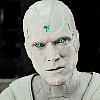
FACE CLAIM: Paul Bettany
AGE: Uncertain
STATUS: MIA
SEXUALITY: Unknown
OCCUPATION: Avenger
Nathaniel Taylor {Terra Nova}

FACE CLAIM: Stephen Lang
AGE: 59
STATUS: Alive
SEXUALITY: Straight
OCCUPATION: Commander of Terra Nova
Lance Bishop {Aliens}

FACE CLAIM: Lance Henriksen
AGE: Unknown
STATUS: Presumed Deactivated
SEXUALITY: Unknown
OCCUPATION: Synthetic Technician
Norman Osborn {Marvel Universe}

FACE CLAIM: Willem Dafoe
AGE: 50s
STATUS: Presumed Dead
SEXUALITY: Unknown
OCCUPATION: Industrialist
Waldo {Into The Badlands}

FACE CLAIM: Stephen Lang
AGE: 65
STATUS: Alive
SEXUALITY: Straight
OCCUPATION: Former Regent/Advisor
The Collector {Marvel Universe}

FACE CLAIM: Benicio del Toro
AGE: Unknown
STATUS: Alive
SEXUALITY: Unknown
OCCUPATION: Collector of Species
Dr. Issacs {Resident Evil}

FACE CLAIM: Ian Glen
AGE: 50s
STATUS: Alive
SEXUALITY: Unknown
OCCUPATION: Umbrella Scientist
Ruby Knowby {Ash vs Evil Dead}

FACE CLAIM: Lucy Lawless
AGE: Unknown
STATUS: Dead/Alive/It's Complicated
SEXUALITY: Bisexual
OCCUPATION: Dark One
Johnathan Carnahan {The Mummy}

FACE CLAIM: John Hannah
AGE: Uncertain
STATUS: Alive
SEXUALITY: Straight
OCCUPATION: Entrepreneur
Kurt Wagner {X-men/X-2}

FACE CLAIM: Alan Cumming
AGE: Unknown
STATUS: Alive
SEXUALITY: Uncertain
OCCUPATION: Mutant/Circus Performer/Child of God
#harry vanderspeigle#ruby knowby#canon characters#character page#resident evil#marvel universe#horror movies#omitb rp#merlin rp#resident alien rp#alien verse#buffy verse#warlock rp#alan cumming#john hannah
2 notes
·
View notes
Text
from a friend
"The whole history of the progress of human liberty shows that all concessions yet made to her august claims have been born of earnest struggle.
If there is no struggle, there is no progress.
Those who profess to favor freedom, and yet
deprecate agitation, are men who want crops without plowing up the ground.
They want rain without thunder and lightning. They want the ocean without the awful roar of its many waters.
This struggle may be a moral one; or it may be a physical one; or it may be both moral and physical; but it must be a struggle. Power concedes nothing without a demand. It never did and it never will.
Find out just what any people will quietly submit to and you have found out the exact measure of injustice and wrong which will be imposed upon them, and these will continue till they are resisted with either words or blows, or both.
The limits of tyrants are prescribed by the endurance of those whom they oppress."
– Frederick Douglass, West India Emancipation speech, Canandaigua, New York, August 3, 1857; "The Mind of Frederick Douglass," Waldo E. Martin, Jr. (The University of North Carolina Press, 1984) pp. 175-176
3 notes
·
View notes
Note
Has it ever occurred to you that maybe you're just a complete idiot making up shit and that you don't know what you're talking about because you would rather worship an edgy white dudebro than identify with WOC characters?
Anon, you have one week to read your choice of the following books. I expect a full report on the issues the author is attempting to educate you on, why it's important, who benefits from the general public's lack of knowledge, and the many ways in which people fail to self-reflect on their behaviors when it comes to the well being of other people
White Fragility: Why It's So Hard For White People To Talk About Racism by Robin DiAngelo
Freedom Is A Constant Struggle by Angela Y. Davis
The New Jim Crow: Mass Incarceration in the Age of Colorblindness by Michelle Alexander
Sojourner Truth: A Life, A Symbol by Nell Irvin Painter
Black against Empire: The History and Politics of the Black Panther Party by Joshua Bloom and Waldo E. Martin Jr.
If you find a book that fits this subject that you would rather read, submit it for approval by Thursday
If you continue to accuse me without any evidence or providing adequate entertainment, consider yourself a failed student. Should this occur, any further messages will be deleted
Prove that you have a better intellect than a baboon throwing shit at the wall. Good luck. I think you'll need it
#rwde#i am not joking. send me all the anon hate you want but if it aint creative or unique it aint getting posted#if it does not have any meat i will not bite#like seriously. i didnt mention anyone outside of shawcross and luna in my post and this is the take you wanna fling? aight#i was talking about the white fang as a whole ass organization#which spoilers includes sienna and ilia#so youre the one blocking out the women if youre conflating the entire WF group w adam#i bet you can't even think of any black activists outside of mlk jr and malcolm x#do you even know who sojourner truth is??? highly doubt it#this kinda shit is how we all know youre white as hell#you dont actually give a flying fuck abt the issues women of color face#you just want a moral shield to beat people w then whine when you get called out for obvious bs#if you care abt women then work with local politicians to establish healthcare rights#if you care abt poc then protest in the streets w them whenever the police go too far#or better yet. intervene before someone gets put into a grave#use your white privilege to shield actual fucking people instead of being a whitebread dumbass#anon hours
14 notes
·
View notes
Text
Mini-Mochila Onde Está Wally? (Loungefly)
A Loungefly colocou em pré-venda uma mini-mochila muito irada com o protagonista da série de livros Onde está Wally? ilustrada por Martin Handford.
A mochila Where’s Waldo? Cosplay Mini-Backpack tem na parte frontal o aventureiro Waldo com cabeça em aplique 3D, incluindo gorro e óculos de grau preto, com camisa listrada de vermelho e branco com sua bolsa marrom no bolso da frente, que ainda tem…

View On WordPress
0 notes
Text
07FEBEl programa de diez puntos del Partido Pantera Negra-
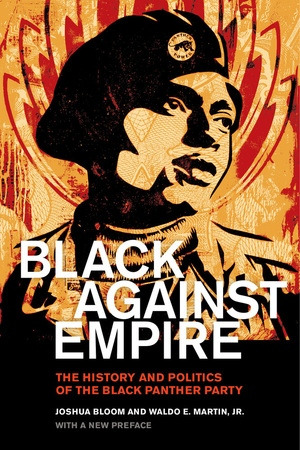
El pasado octubre marcó el 50 aniversario de la fundación del Partido Pantera Negra en Oakland, California, cuando, en 1966, los estudiantes universitarios Bobby Seale y Huey Newton prometieron prevenir la brutalidad policial contra las comunidades negras. Frente a la intensa represión, el Partido floreció y se convirtió en el centro de un movimiento revolucionario con oficinas en sesenta y ocho ciudades de Estados Unidos y poderosos aliados en todo el mundo.
Hoy, la lucha del Partido contra la brutalidad policial sigue inspirando a activistas y organizadores, que buscan desarrollar nuevas formas de organización a medida que cambian las herramientas y los métodos y cambian los acontecimientos actuales. En el nuevo prefacio de Black Against Empire: The History and Politics of the Black Panther Party , los autores Joshua Bloom y Waldo E. Martin Jr. ubican al Black Panther Party en el panorama político actual, especialmente en lo que se refiere a Black Lives Matter.
#07FEBEl programa de diez puntos del Partido Pantera Negra#¿Esta es la imagen y algunos datos (O no) la “Historia” la pones tú? ¡La tuya! ¿Lo harás...?
0 notes
Photo

Christmas came early for me. New books always bring me so much joy. Thank you @levinequerido for the gifted copies of these wonderful books. QOTD: Which one should I read first? 🎁 Featured 🎁 📚 Gibberish by Young Vo 📚 My Good Man by Eric Gansworth 📚 Manmade Monsters by Andrea L. Rogers 📚 Freedom! by Jetta Grace Martin, Joshua Bloom & Waldo E. Martin, Jr. 📚 What the Jaguar Told Her by Alexandra V. Méndez 📚 High Spirits by Camille Gomera-Tavarez #Bookstagram #Bookmail #Bookish #Books #Bookcommunity #Reading #Bookstagrammers #LevineQuerido #AmReading #BIPOCBookstagram #BIPOCAuthors #Bookphotography #ReadersofInstagram #IGReads #tbr #BooksBooksBooks #LatinxBooks #IndigenousBooks #BlackBooks #AsianBooks #BIPOCBooks #Read #BookRecommendation #Bookworm https://www.instagram.com/p/CmZx2XYP3xo/?igshid=NGJjMDIxMWI=
#bookstagram#bookmail#bookish#books#bookcommunity#reading#bookstagrammers#levinequerido#amreading#bipocbookstagram#bipocauthors#bookphotography#readersofinstagram#igreads#tbr#booksbooksbooks#latinxbooks#indigenousbooks#blackbooks#asianbooks#bipocbooks#read#bookrecommendation#bookworm
0 notes
Quote
By the time Huey Newton became involved in the Afro-American Association at Merritt, he could debate theory as well as any of his peers. Yet he had a side that most of the budding intellectuals around him lacked; he knew the street. He could understand and relate to the plight of the swelling ranks of unemployed, the "brothers on the block" who lived outside the law. Newton’s street knowledge helped put him through college, as he covered his bills through theft and fraud. But when Newton was caught, he used his book knowledge to study the law and defend himself in court, impressing the jury and defeating several misdemeanor charges.
Joshua Bloom & Waldo E. Martin, Black against Empire: The History and Politics of the Black Panther Party (2013, University of California Press)
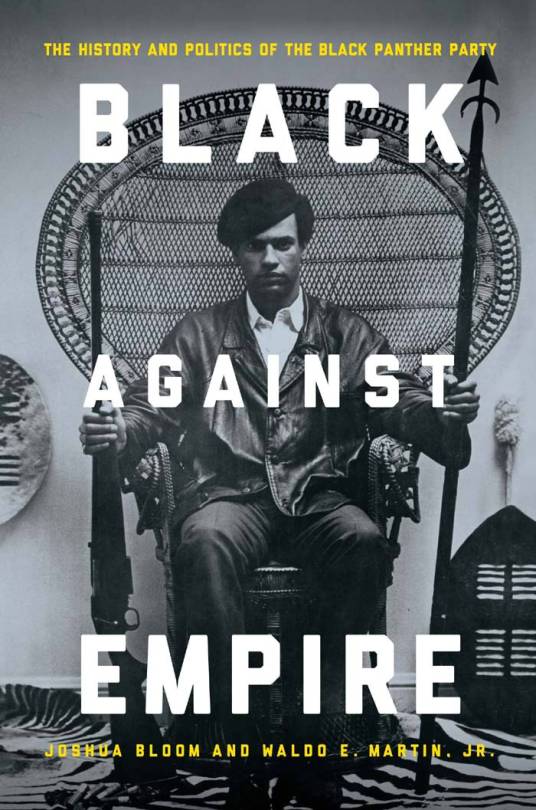
#Black against Empire: The History and Politics of the Black Panther Party#Joshua Bloom#Waldo E. Martin#theory#the phantom of liberty#I fought the law
35 notes
·
View notes
Text
Lately I've gotten super into "books" after hearing about them from boomer newspaper cartoons. Anyway, here's my top ten recommendations from things I read in 2021.
Capitalism and Disability: Essays by Marta Russell
Policing in Class Society: The Experience of American Cities, 1865-1915 by Sidney L. Harring
Subterranean Fire: A History of Working-Class Radicalism in the United States by Sharon E. Smith
Mutual Aid by Pyotr Kropotkin
Manufacturing Consent by Edward S. Herman, Noam Chomsky
How Europe Underdeveloped Africa by Walter Rodney
Discipline & Punish by Michel Foucault
The Jakarta Method by Vincent Bevins
The Wretched of the Earth by Frantz Fanon
Black Against Empire by Joshua Bloom, Waldo E. Martin Jr.
#still reading black reconstruction which deserves mention#i was tempted to do a much longer list lol#books#reading
45 notes
·
View notes
Photo
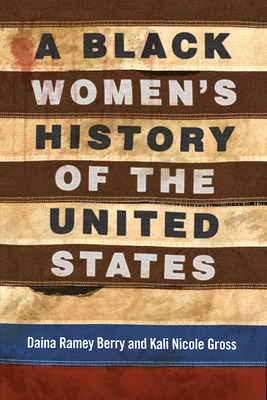
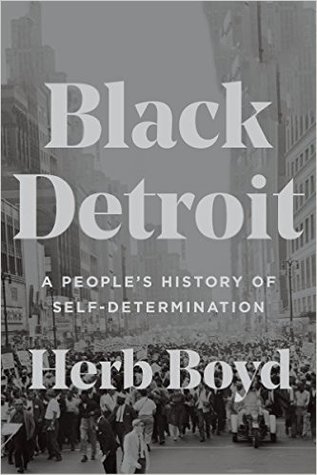
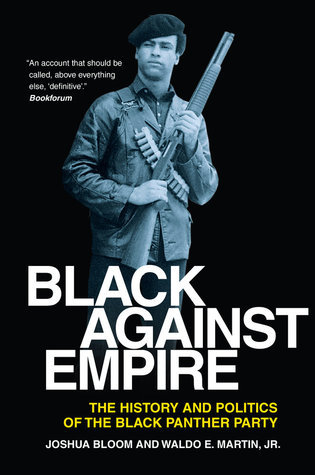
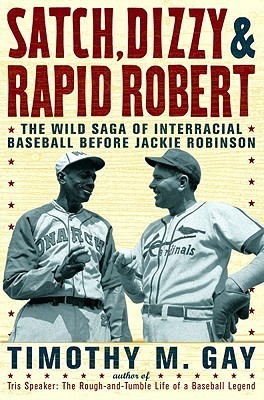
Black History Month: some reading to get you started
Celebrate Black excellence with these titles
A Black Women's History of the United States by Daina Ramey Berry, Kali Nicole Gross
A vibrant and empowering history that emphasizes the perspectives and stories of African American women to show how they are--and have always been--instrumental in shaping our country
In centering Black women's stories, two award-winning historians seek both to empower African American women and to show their allies that Black women's unique ability to make their own communities while combatting centuries of oppression is an essential component in our continued resistance to systemic racism and sexism. Daina Ramey Berry and Kali Nicole Gross offer an examination and celebration of Black womanhood, beginning with the first African women who arrived in what became the United States to African American women of today.
A Black Women's History of the United States reaches far beyond a single narrative to showcase Black women's lives in all their fraught complexities. Berry and Gross prioritize many voices: enslaved women, freedwomen, religious leaders, artists, queer women, activists, and women who lived outside the law. The result is a starting point for exploring Black women's history and a testament to the beauty, richness, rhythm, tragedy, heartbreak, rage, and enduring love that abounds in the spirit of Black women in communities throughout the nation.
Black Detroit: A People's History of Self-Determination by Herb Boyd
The author of Baldwin’s Harlem looks at the evolving culture, politics, economics, and spiritual life of Detroit—a blend of memoir, love letter, history, and clear-eyed reportage that explores the city’s past, present, and future and its significance to the African American legacy and the nation’s fabric.
Herb Boyd moved to Detroit in 1943, as race riots were engulfing the city. Though he did not grasp their full significance at the time, this critical moment would be one of many he witnessed that would mold his political activism and exposed a city restless for change. In Black Detroit, he reflects on his life and this landmark place, in search of understanding why Detroit is a special place for black people.
Boyd reveals how Black Detroiters were prominent in the city’s historic, groundbreaking union movement and—when given an opportunity—were among the tireless workers who made the automobile industry the center of American industry. Well paying jobs on assembly lines allowed working class Black Detroiters to ascend to the middle class and achieve financial stability, an accomplishment not often attainable in other industries.
Boyd makes clear that while many of these middle-class jobs have disappeared, decimating the population and hitting blacks hardest, Detroit survives thanks to the emergence of companies such as Shinola—which represent the strength of the Motor City and and its continued importance to the country. He also brings into focus the major figures who have defined and shaped Detroit, including William Lambert, the great abolitionist, Berry Gordy, the founder of Motown, Coleman Young, the city’s first black mayor, diva songstress Aretha Franklin, Malcolm X, and Ralphe Bunche, winner of the Nobel Peace Prize.
With a stunning eye for detail and passion for Detroit, Boyd celebrates the music, manufacturing, politics, and culture that make it an American original.
Black Against Empire: The History and Politics of the Black Panther Party by Joshua Bloom, Waldo E. Martin Jr.
In Oakland, California, in 1966, community college students Bobby Seale and Huey Newton armed themselves, began patrolling the police, and promised to prevent police brutality. Unlike the Civil Rights Movement that called for full citizenship rights for blacks within the U.S., the Black Panther Party rejected the legitimacy of the U.S. government and positioned itself as part of a global struggle against American imperialism. In the face of intense repression, the Party flourished, becoming the center of a revolutionary movement with offices in 68 U.S. cities and powerful allies around the world.
Black against Empire is the first comprehensive overview and analysis of the history and politics of the Black Panther Party. The authors analyze key political questions, such as why so many young black people across the country risked their lives for the revolution, why the Party grew most rapidly during the height of repression, and why allies abandoned the Party at its peak of influence. Bold, engrossing, and richly detailed, this book cuts through the mythology and obfuscation, revealing the political dynamics that drove the explosive growth of this revolutionary movement, and its disastrous unraveling. Informed by twelve years of meticulous archival research, as well as familiarity with most of the former Party leadership and many rank-and-file members, this book is the definitive history of one of the greatest challenges ever posed to American state power.
Satch, Dizzy, and Rapid Robert: The Wild Saga of Interracial Baseball Before Jackie Robinson by Timothy M. Gay
Before Jackie Robinson integrated major league baseball in 1947, black and white ballplayers had been playing against one another for decades--even, on rare occasions, playing with each other. Interracial contests took place during the off-season, when major leaguers and Negro Leaguers alike fattened their wallets by playing exhibitions in cities and towns across America. These barnstorming tours reached new heights, however, when Satchel Paige and other African- American stars took on white teams headlined by the irrepressible Dizzy Dean. Lippy and funny, a born showman, the native Arkansan saw no reason why he shouldn't pitch against Negro Leaguers. Paige, who feared no one and chased a buck harder than any player alive, instantly recognized the box-office appeal of competing against Dizzy Dean's "All-Stars." Paige and Dean both featured soaring leg kicks and loved to mimic each other's style to amuse fans. Skin color aside, the dirt-poor Southern pitchers had much in common. Historian Timothy M. Gay has unearthed long-forgotten exhibitions where Paige and Dean dueled, and he tells the story of their pioneering escapades in this engaging book. Long before they ever heard of Robinson or Larry Doby, baseball fans from Brooklyn to Enid, Oklahoma, watched black and white players battle on the same diamond. With such Hall of Fame teammates as Josh Gibson, Turkey Stearnes, Mule Suttles, Oscar Charleston, Cool Papa Bell, and Bullet Joe Rogan, Paige often had the upper hand against Diz. After arm troubles sidelined Dean, a new pitching phenom, Bob Feller--Rapid Robert--assembled his own teams to face Paige and other blackballers. By the time Paige became Feller's teammate on the Cleveland Indians in 1948, a rookie at age forty-two, Satch and Feller had barnstormed against each other for more than a decade.
These often obscure contests helped hasten the end of Jim Crow baseball, paving the way for the game's integration. Satchel Paige, Dizzy Dean, and Bob Feller never set out to make social history--but that's precisely what happened. Tim Gay has brought this era to vivid and colorful life in a book that every baseball fan will embrace.
#black history month#black history#non-fiction#nonfiction books#reading recommendations#book recs#recommended reading#library#civil rights#black excellence#nonfiction#booklr#tbr#to read
31 notes
·
View notes
Text
An establishment chorus denounced King’s Poor People’s March as well as his increasingly vigorous opposition to the Vietnam War. Robert Byrd, the Democratic senator of West Virginia, called King a “self-seeking rabble rouser” and called for a restraining order to block the planned April demonstrations against poverty. The day before King was killed, a federal court had issued a restraining order prohibiting him from holding a demonstration in Memphis. Angry and defiant, King called the order “illegal and unconstitutional,” and refused to obey it.
But when King died, the establishment quickly put aside its wrath and sought to claim him as a martyr for America. On the evening after King’s assassination, President Johnson addressed the nation, asking “every citizen to reject the blind violence that has struck Dr. King, who lived by non-violence.” The president emphasized King’s nonviolent tactics and ignored the insurgent character of his leadership, appropriating the symbolism of King’s death for America....
– Joshua Bloom & Waldo E. Martin Jr, Black Against Empire
95 notes
·
View notes
Quote
Agent provocateurs on the government payroll supplied explosives to Panther members and sought to incite them to blow up public buildings, and they promoted kangaroo courts encouraging Party members to torture suspected informants.
BLACK AGAINST EMPIRE: THE HISTORY AND POLITICS OF THE BLACK PANTHER PARTY, Joshua Bloom & Waldo E. Martin Jr.
I implore y’all to read this book. Nothing has changed.
5 notes
·
View notes
Text
So I don’t think I mentioned it on here, but last year I undertook the challenge to read 100 books in a year. I figured I’d drop the list of books that I read here. Almost all of them were good books that I’d encourage you to read. It’s a pretty wide range of topics. Some Sci-Fi, some Fantasy, some History, some Politics, some Economics, some Philosophy, some Theology, etc.
-Starship Troopers — Robert Heinlein
-Foundation — Isaac Asimov
-Herman Bavinck on Preaching and Preachers— James Eglinton
-Foundation and Empire — Isaac Asimov
-Second Foundation — Isaac Asimov
-Left, Right, & the Prospects for Liberty — Murray N. Rothbard
-Democracy: The God That Failed — Hans Herman Hoppe
-The Forever War — Joe Halderman
-Forever Free — Joe Halderman
-Wolverine, Volume 3: Wolverine’s Revenge — Jason Aaron
-Slaughterhouse-Five — Kurt Vonnegut
-A Separate War — Joe Halderman
-Foundation’s Edge — Isaac Asimov
-The Prince — Niccolò Machiavelli
-Nemesis — Isaac Asimov
-Citizen of the Galaxy — Robert Heinlein
-Hatching Twitter: A True Sotry of Money, Power, Friendship, and Betrayal — Nick Bilton
-Do Androids Dream of Electric Sheep — Phillip K. Dick
-The Religious Life of Theological Students — B.B. Warfield
-Out of the Silent Planet — C.S. Lewis
-The Great Divorce — C.S. Lewis
-Behold a Pale Horse — William Milton Cooper
-Confessions of an Economic Hitman — John Perkins
-The Abolition of Man — C.S. Lewis
-Geerhardus Vos: Reformed Biblical Theologian , Confessional Presbyterian — Danny Olinger
-Foundation and Earth — Isaac Asimov
-Sinners in the Hands of an Angry God — Jonathan Edwards
-A River in Darkness: One Man’s Escape from North Korea — Masaji Ishikawa
-Annihilation — Jeff Vandermeer
-Authority — Jeff Vandermeer
-Acceptance — Jeff Vandermeer
-Commentary on 1 Corinthians — John Calvin
-Education, Christianity, and the State — J. Gresham Machen
-Machinery of Freedom: Guide to Radical Capitalism — David Friedman
-The Federal Reserve Conspiracy — Anthony Sutton
-A Book of Five Rings: The Classic Guide to Strategy — Miyamoto Musashi
-Apology — Plato
-Odd and the Frost Giants — Neil Gaiman
-The Universe in a Nutshell — Stephen Hawking
-Prelude to Foundation — Isaac Asimov
-Dear Reader: The Unauthorized Autobiography of Kim Jong Il — Michael Malice
-America before: The Key to Earth’s Lost Civilization — Graham Hancock
-The New Right: A Journey to the Fringe of American Politics — Michael Malice
-The Enchiridion — Epictetus
-The Punisher MAX, Vol 1: In the Beginning — Garth Ennis
-The Machieavellians: Defenders of Freedom — James Burnham
-End the Fed — Ron Paul
-Serenity: Those Left Behind — Joss Whedon
-Ego and Hubris: The Michael Malice Story — Harvey Pekar
-The Art of War — Sun Tzu
-A Renegade History of the United States — Thaddeus Russell
-The Prose Edda — Snorri Sturluson
-My Hero Academia, #1 — Kohei Horikoshi
-My Hero Academia, #2 — Kohei Horikoshi
-Tokyo Ghoul, Tome 1 — Sui Ishida
-Selections from the Table Talk of Martin Luther — Martin Luther
-Animal Farm — George Orwell
-Pointiac: The Life and Legacy of the Famous Native American Chief — Charles River Editors
-Operation Paperclip: The Secret Intelligence Project that Brought Nazi Scientists to America — Annie Jacobsen
-Neuromancer — William Gibson
-The Last Wish — Andrzej Sapkowski
-Sword of Destiny — Andrzej Sapkowski
-Better Days and Other Stories — Joss Whedon
-The Stranger — Albert Camus
-Christianity and Liberalism — J. Gresham Machen
-Count Zero — William Gibson
-Blood of Elves — Andrzej Sapkowski
-Tokyo Ghoul 2 — Sui Ishida
-The World That Couldn’t Be — Clifford Simak
-The Austrian Theory of the Trade Cycle and Other Essays — Richard Ebeling
-Anarchy — Errico Malatesta
-Anarchism and Other Essays — Emma Goldman
-No Treason: The Constitution of No Authority — Lysander Spooner
-Propaganda and Control of the Public Mind — Noam Chomsky
-The Time of Contempt — Andrzej Sapkowski
-The Communist Manifesto — Karl Marx
-Mona Lisa Overdrive — William Gibson
-The Metamorphosis — Franz Kafka
-The Enchiridion on Faith, Hope, and Love — Augustine
-The Structure of Scientific Revolutions — Thomas Kuhn
-The Dunwich Horror — H.P. Lovecraft
-The Machine Stops — E.M. Forster
-Rip Van Winkle — Washington Irving
-The Screwtape Letters — C.S. Lewis
-Self-Reliance — Ralph Waldo Emmerson
-Perspectives on Pentecost — Richard B. Gaffin Jr.
-Wanted: 7 Fearless Engineers! — Orlin Tremaine
-Norse Mythology — Neil Gaiman
-The Whole Armor of God: How Christ’s Victory Strengthens Us for Spiritual Warfare — Iain Duguid
-Bushcraft 101: A Field Guide to the Art of Wilderness Survival — Dave Canterbury
-God With Us: Divine Condescension and the Attributes of God — K. Scott Oliphint
-Blood Meridian, or the Evening Redness in the West — Cormac McCarthy
-Why I Believe in God — Cornelius Van Til
-Paul at Athens — Cornelius Van Til
-Astrphysics for People in a Hurry — Neil DeGrasse Tyson
-Real Dissent: A Libertarian Sets Fire to the Index Card of Allowable Opinion — Thomas E. Woods Jr.
-City of Glass — Paul Auster
-The Articles of Confederation — Continental Congress
-The Temptation of Our Lord — John Bale
-Fool’s Errand: Time to End the War in Afghanistan — Scott Horton
13 notes
·
View notes
Photo

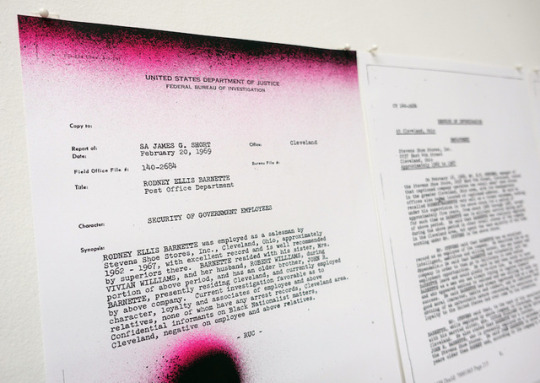

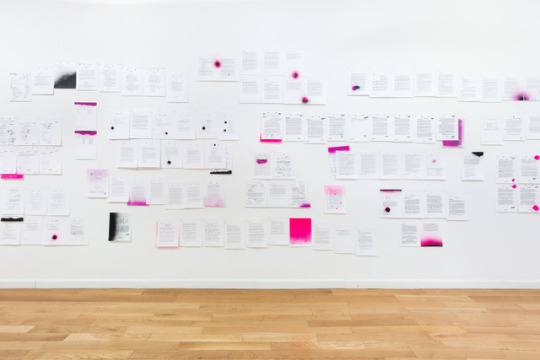
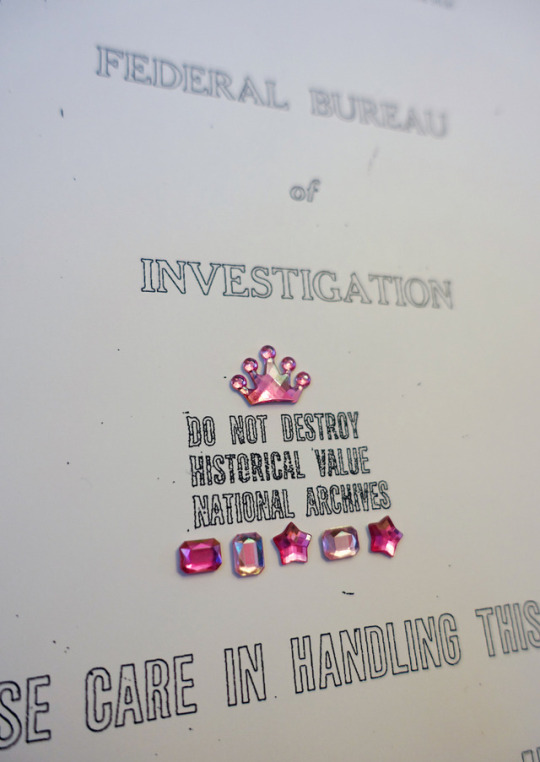
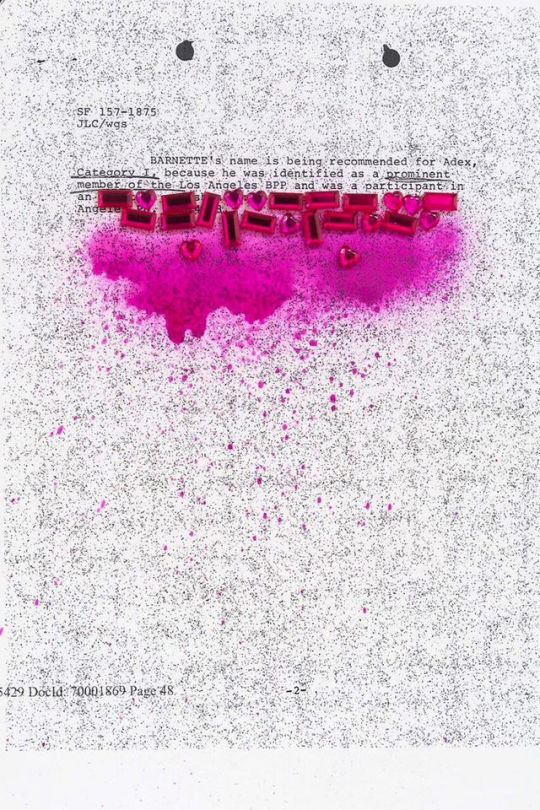
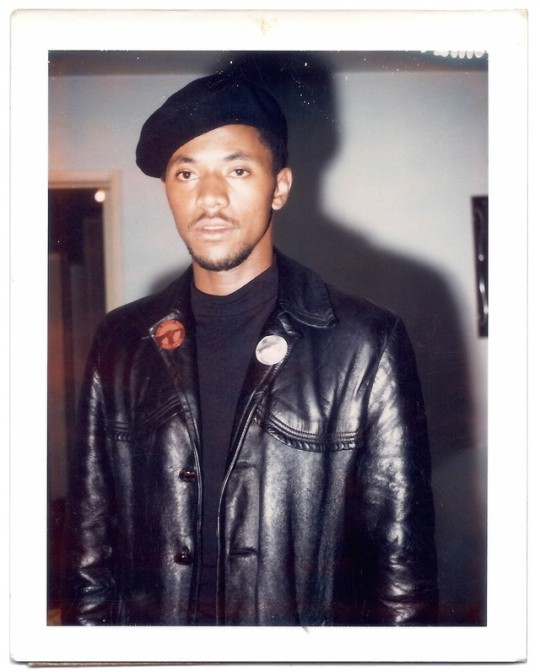
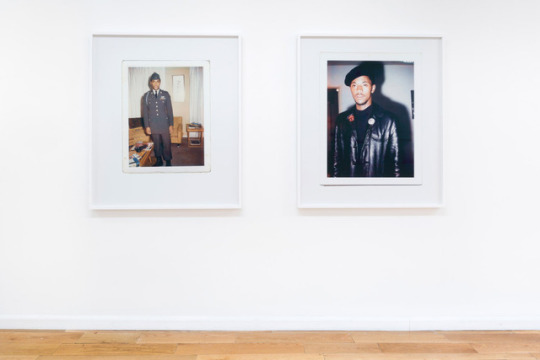
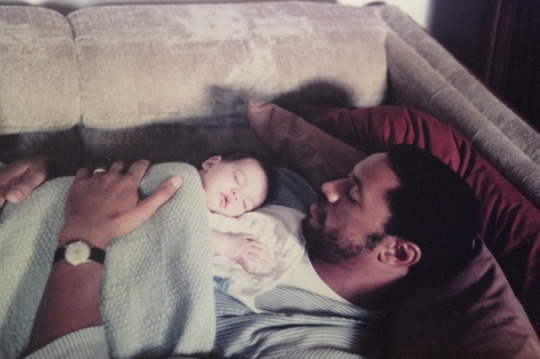

Sadie Barnette Reclaims Her Father’s Black Panther FBI File As Art
Artist Sadie Barnette’s family tree includes a 500-page FBI file. In 1968, the United States government placed her father, Rodney Barnette, under surveillance. For decades, his every daily detail was logged and noted. Family members, employers, even his former high school teachers were interrogated. The reason for the target on his back: Rodney was a founding member of the Compton, California chapter of the Black Panther Party for Self Defense.
In an era where J. Edgar Hoover’s FBI sought to actively, though covertly, criminalize and destroy the Panthers—and arguably any prominent or rising Black political leader—the elder Barnette was of hundreds of activists subject to state-sanctioned harassment and intimidation, their organizations infiltrated and discredited. Other revolutionaries were incarcerated; some were assassinated.
Growing up, Sadie Barnette’s father’s history was never a secret. It seems almost inevitable that the young artist whose work is dedicated to excavating the constructs of identity would turn her gaze to his FBI file, newly available through a Freedom of Information Act request. For Do Not Destroy, her first solo exhibition in New York City, Barnette reframes the pages of the dossier as a father-daughter conversation. With the intervention of her own visual presence—through unapologetically girly embellishments and abstractions—she subverts the government’s narrative with her own. The spurts of hot pink spray paint on black-and-white pages restore a sense of sinew and blood, returning a dignity of wholeness to the life described therein. And so, it is from an inheritance of being targeted and surveilled, that Barnette has grown a garden of reclamation.
Mass Appeal sat down with the Oakland-born artist to learn more.
Mass Appeal: Your family knows what it is like to be targeted, to be painted as a “terrorist.” What are some of your thoughts on the current administration’s rhetoric and actions in dehumanizing and criminalizing believers of Islam, refugees and the undocumented?
Sadie Barnette: One of the things that was really striking about my dad’s file was that my dad was fired from his job at the Post Office because of his involvement with the Panthers. But, the law used to get him fired was something that President Truman had put on the books. It was an Executive Order that talked about behavior unbecoming to a government employee. That’s what they used to get my dad fired because he was cohabitating with a woman who he wasn’t married to… That was behavior that was unbecoming of a government employee. But, the reason that law was put on the books was to get gay people out of government jobs. So it’s another one of those examples where people think “Oh, this law doesn’t affect me. I’m not Muslim. I’m not an immigrant. I’m not trans. This has nothing to do with me.” But a similar law or laws can be used to target whoever the government is considering inconvenient at the time or whoever is questioning things or fighting for their rights. That’s definitely something that we have to keep in mind today.
Was activism and an awareness beyond self-interest part of your birthright or did you come into your own political awakening?
It was always something I held in my heart… I looked at situations with systemic analysis. If the police beat someone up or say if somebody in the family didn’t have access to something that they needed, I would always see it through a lens of systemic problems in our country. When I was in high school, I was very aware that students were being criminalized and were being shuttled along this school-to-prison pipeline. So those things were always on my mind. And growing up in the Bay area, there is a lot of activism and systemic analysis.
How did that activism and analysis start to factor in or feed your artistic growth?
I think they definitely go hand-in-hand. All art is political even when it’s not. Because it’s still a political choice if you are choosing to ignore politics. Often times, just the act of making art or changing the way people think even if its meant as an act of poetry is inherently political. People need escape and fantasy and fiction and need to feel beautiful and seen and heard. So for me even in my work that isn’t directly talking about the FBI file, it is still a commitment to… The act of making art is still a commitment to humanity.
What prompted your dad to want to look at your father’s file, and then what prompted you to want to work with the material?
My dad always wondered what experiences were tied to his FBI surveillance, harassment and intimidation. He wanted the file and so filed a Freedom of Information Act request to get it. It took about four years to get the file. I’m not sure what at that exact moment made him want to really face what a lot of people don’t want to look at. It can be too painful. But, he knows that it is bigger than himself. He also was very lucky that he wasn’t assassinated at the time or thrown in jail. He really is a strong person that survived a lot and still is able to see the value in sharing his experiences. I’ve always been interested in telling the story of my parents and also the activism and the cultural outpourings of that time period. This just seemed like the perfect way to do that—using this file for good and reclaiming it.
Did you wrestle with how much of the file you should work with or alter or how much you should let it speak for itself?
I definitely had to wrestle with it. The fact that the project’s first debut was at the Oakland Museum for the Black Panther exhibit, All Power to the People: Black Panthers at 50 really helped give me confidence that this could be framed and contextualized properly because the show is really dedicated to talking about the full complexities of the Black Panthers, not just like the cool image or that kind of thing. So being included in the Oakland Museum exhibition was what really made me excited about making the final decisions as to how to use this material.
I think it will be the type of project that’ll be ongoing. I’m not the kind of artist that thinks this is the like the ultimate or some kind of end. It’s no [laughs] magnum opus—it’s ongoing. One of the things I value about being an artist is that you can be unsure. You can question and try things. I’m sure I will work in many ways with this file. At some point, I’d like to make a book project with it. My intention often when I’m making art is not about making things; it’s about seeing things. So, the re-framing, the juxtaposing of these files and just a few gesture on my part was really what I wanted to do to allow the pages to speak for themselves and then for the viewer to bring something new to it.
The work also calls into the conversation the political activists that were murdered. Others were arrested and some still incarcerated to this day. Is it imperative to you as we celebrate the 50th Anniversary of the Panthers?
Absolutely. It is hugely important. And I think it is something that we still don’t know enough about. There are a ton of names of people in my dad’s file who he knew, who were his mentors who were killed. John Huggins. Bunchy Carter. They were murdered at UCLA. It is a double tragedy if their lives were not only stolen and taken away from their families but that they are also not remembered in the historical consciousness.
Have you become a student of the era as a result?
Definitely. I’ve been reading several books. One is called The Burglary by Betty Medsger. She basically was one of the reporters to receive the first batch of stolen FBI files around 1972 from this small FBI office in Pittsburgh. These anti-war activists realized that the movement was being surveilled so heavily that the only way to expose what the FBI was actually doing was to break into this office. I’ve been learning a ton about J. Edgar Hoover. It’s amazing to think that these activists were just regular, hard-working people. They weren’t criminals, they were actually repelled by [the thought of] breaking into this office, but they knew it would be worse to let Hoover run the FBI unchecked and run democracy into the ground. The other book is Black Against Empire: The History and Politics of The Black Panther Party by Joshua Bloom and Waldo E. Martin, Jr.
What did working with this file teach or surprise you about your dad or by extension about yourself?
Well, it’s hard to say. I’m pretty close to my dad so most of the things I knew already. I definitely learned more about our government than I did about my family. Questioning the government, dissent, is legal. It is written into the Constitution. If the government isn’t working properly, then the people are to change it. But people who are in power want to protect their power. As a descendent of slaves and Native Americans in this country, I have never felt like we are included when they say “We the People.” I’ve never felt like this country was mine. My ancestors built this country, but it was never for them either. I’ve always felt that if this country was actually going to be for everyone, then we would have to first really face some things that people don’t want to talk about.
Do Not Destroy is on view through Saturday, February 18, 2017 at Baxter St at Camera Club of New York (126 Baxter St, NY).
#sadie barnette#do not destroy#j. edgar hoover#j edgar hoover#fbi#federal bureau of investigation#black panther party#black panther party for self defense#compton california#california#all power to the people: black panthers at 50#all power to the people black panthers at 50#john huggins#bunchy carter#the burglary#betty medsger#black against empire: the history and politics of the black panther party#black against empire the history and politics of the black panther party#joshua bloom#waldo e. martin jr.#waldo e martin jr#mass appeal#american history#black history#history#art#black art#baxter st#rodney barnette#domestic terrorism
41 notes
·
View notes
Text
Buku terbaik yang dibaca di usia 20 an
✅: Saya dapat menemukan buku ini dalam terjemahaan bahasa indonesia.
❎: Saya tidak dapat menemukan buku ini dalam terjemahaan bahasa indonesia.
Tersedia atau tidak tersedia buku-buku ini dalam bahasa Indonesia dicari menggunakan goggle dan perpustakaan online RI.
Think and Grow Rich - By Napoleon Hill ✅
How to Cultivate an Unshakable Character - By Jim Rohn ❎
Learned Optimism - By Martin E. P. Seligman ❎
The Power of Ambition - By Jim Rohn ❎
Become What You Are - By Alan Watts ✅
The New Psycho-cybernetics - By Maxwell Maltz and Dan Kennedy ✅
Awaken The Giant Within - By Tony Robbins ✅
The Closer's Survival Guide - By Grant Cardone ❎
100 Ways to Stay Motivated - By Grant Cardone ❎
Raving Fans - By Ken Blanchard an Sheldon Bowels ✅
Eat that Frog - By Brian Tracy ✅
The War of Art - By Steven Pressfield ❎
How to Stay Motivated - By Zig Ziglar ❎
The 7 Habits of Highly Effective People - By Stephen Covey ✅
If You're Not First You're Last - By Grant Cardone ❎
The 4-Hour Workweek - By Tim Ferriss ✅
The Chimp Paradox - By Steve Peters ✅
Mastery - By Robert Greene ❎
Sell or Be Sold - By Grant Cardone ✅
Drive - By Daniel H. Pink ❎
Unshakeable - By Tony Robbins ❎
Grit - By Angela Duckworth ✅
Leaders Eat Last - By Simon Sinek ❎
Life’s Golden Ticket - By Brendon Burchard ✅
The Worry Cure - By Robert L. Leahy ❎
Meditations - By Marcus Aurelius ❎
Daring Greatly - By Brene Brown ❎
Mindset - By Carol Dweck ✅
Relentless - By Tim Grover ❎
The Passion Test - By Janet Bray Attwood and Chris Attwood ✅
The Power of Intention - By Dr. Wayne Dyer ✅
Switch - By Chip Heath and Dan Heath ✅
The Year of Magical Thinking - By Joan Didion ✅
Anyway - By Kent M. Keith ✅
Unlimited Power - By Tony Robbins ✅
How to Practice - By The Dalai Lama ❎
Disrupt You - By Jay Samit ❎
Bold - By P. Diamandis and S. Kotler ❎
The Power of Positive Thinking - By Norman Vincent Peale ✅
As a Man Thinketh - By James Allen ✅
The Brain That Changes Itself - By Norman Doidge ❎
Authentic Happiness - By Martin E. P. Seligman ✅
Flow - By Mihaly Csikszentmihalyi ❎
How Good People Make Tough Choices - By Rushworth M. Kidder ❎
Phantoms in the Brain - By V.S. Ramachandran ❎
Emerson: Essays and Lectures - By Ralph Waldo Emerson ❎
Man’s Search for Meaning - By Viktor E. Frankl ✅
Outliers - By Malcolm Gladwell ✅
Happy for No Reason - By Marci Shimoff ❎
The Talent Code - By Daniel Coyle ❎
Stumbling on Happiness - By Daniel Gilbert ✅
Emotional Intelligence - By Daniel Goleman ✅
Eleven Rings - By Phil Jackson ❎
The Moral Animal - By Robert Wright ❎
The Art of Happiness - By The Dalai Lama ✅
Mastery - By George Leonard ❎
Secrets for Happiness & Success - By Og Mandino ✅
The Six Pillars of Self-Esteem - By Nathaniel Branden ❎
Willpower - By Roy F. Baumeister and John Tierney ❎
The Art of Possibility - By Rossamund Stone Zander ❎
Living a Life that Matters - By Harold S. Kushner ❎
Don’t Sweat the Small Stuff - By Richard Carlson ✅
Sometimes You Win Sometimes You Learn - By John Maxwell ✅
The Obstacle is the Way - By Ryan Holiday ❎
What does it Mean to be Human? - By Frederick Franck, Janis Roze, and Richard Connolly ❎
The Charge - By Brendon Burchard ✅
Predictably Irrational - By Dan Ariely ✅
The Power of Myth - By Joseph Campbell ❎
Extreme Ownership - By Jocko Willink and Leif Babin ❎
Incognito - By David Eagleman ❎
Antifragile - By Nassim Nicholas Taleb ❎
Group - By Paul Solotaroff ❎
Linchpin - By Seth Godin ✅
Onward - By Howard Schultz ❎
Start With Why - By Simon Sinek ✅
The 8th Habit - By Stephen R. Covey ✅
The E Myth Revisited - By Michael E. Gerber ✅
The Four Agreements - By Don Biohel Ruiz ❎
The Success Principles - By Jack Canfield ✅
Therapy for the Sane - By Lou Marinoff ❎
What should I do with my Life? - By Po Bronson ❎
Zero to One - By Peter Thiel ✅
1 note
·
View note